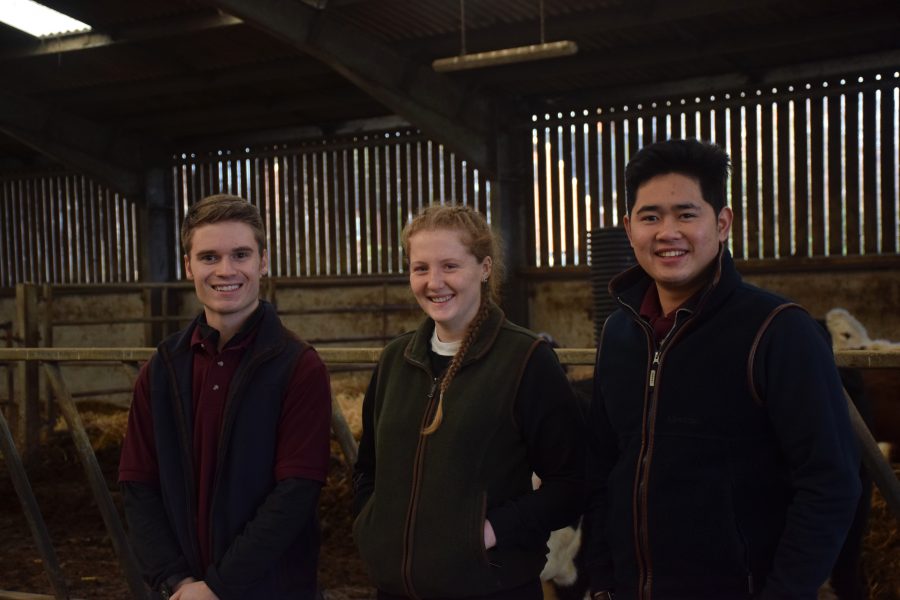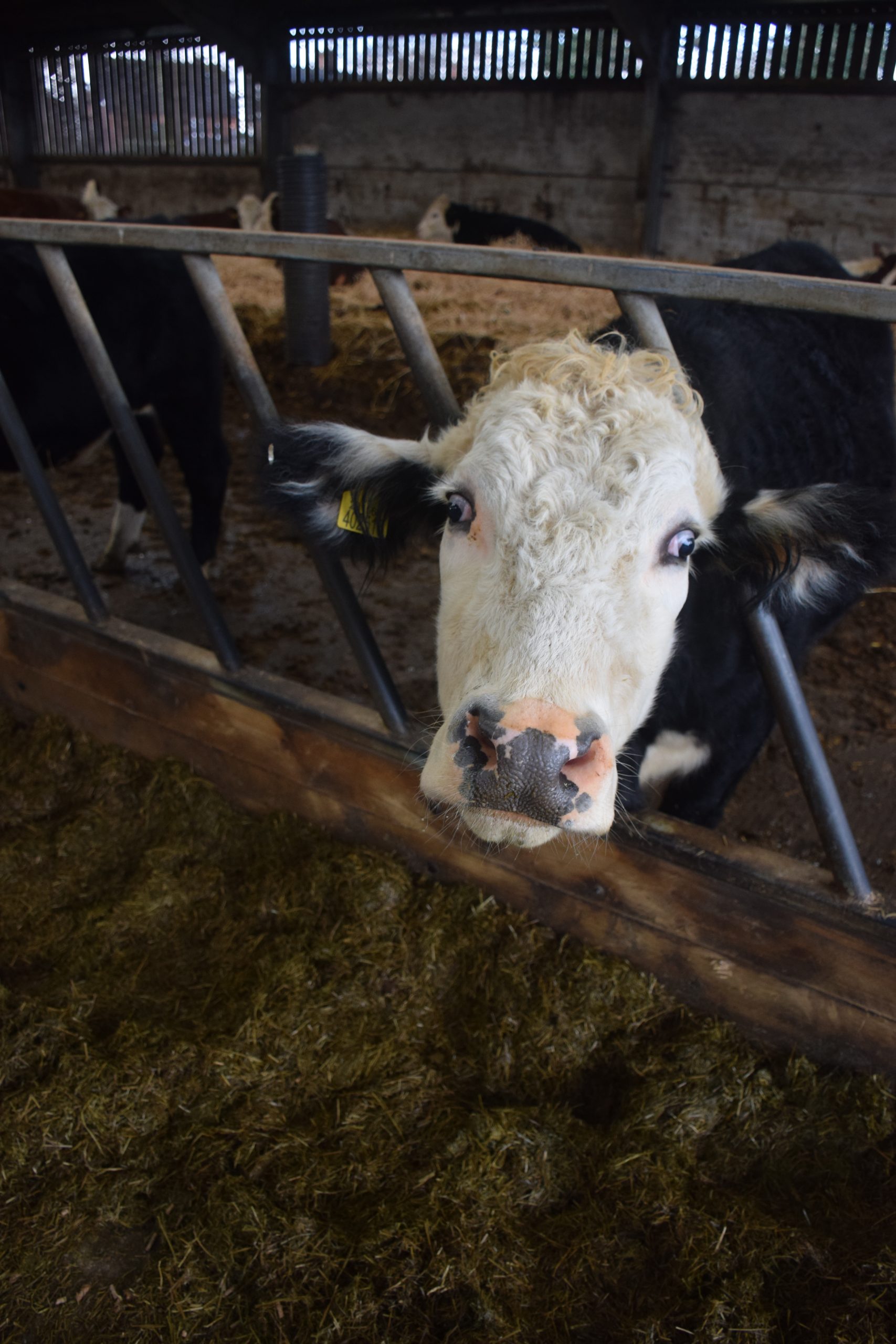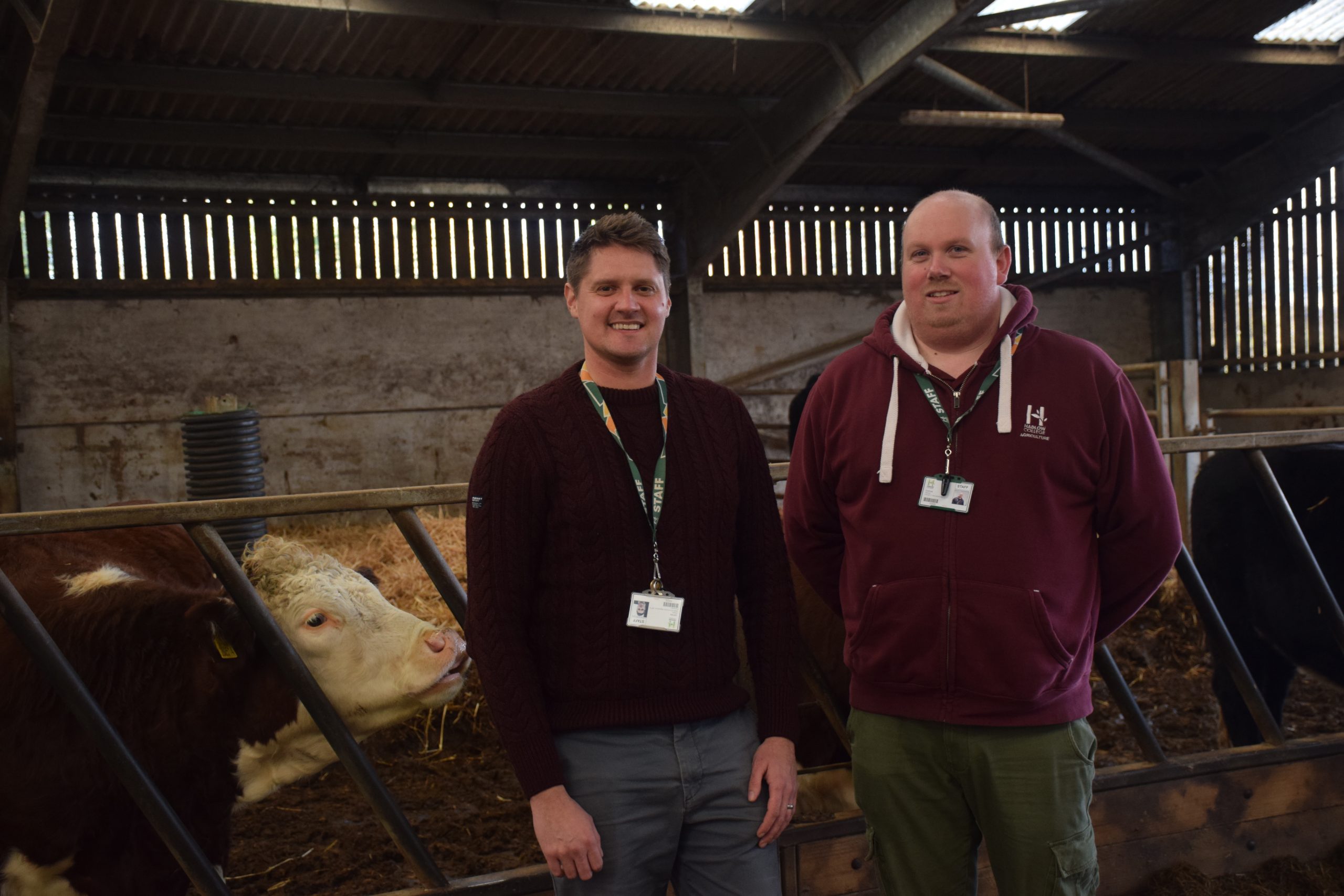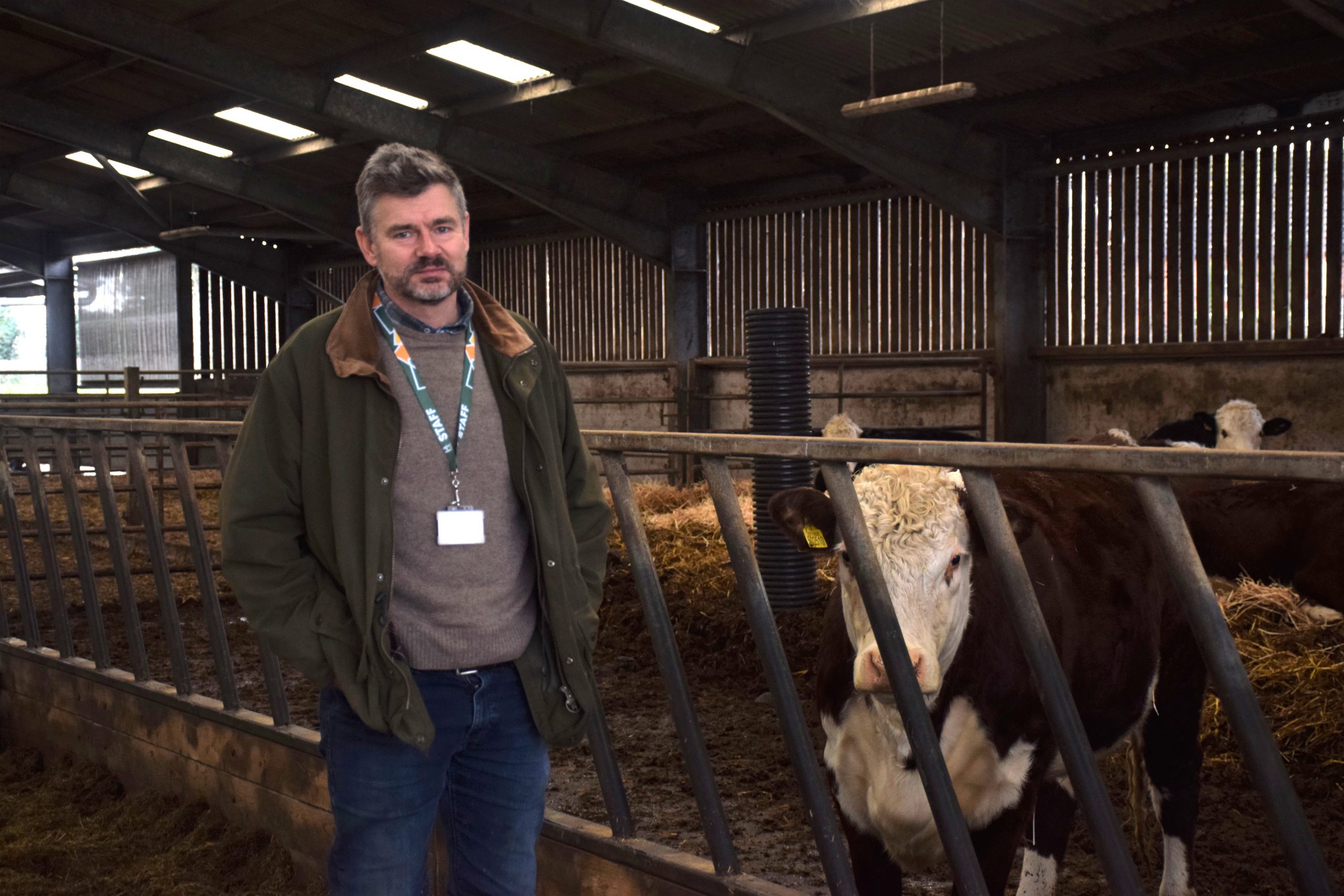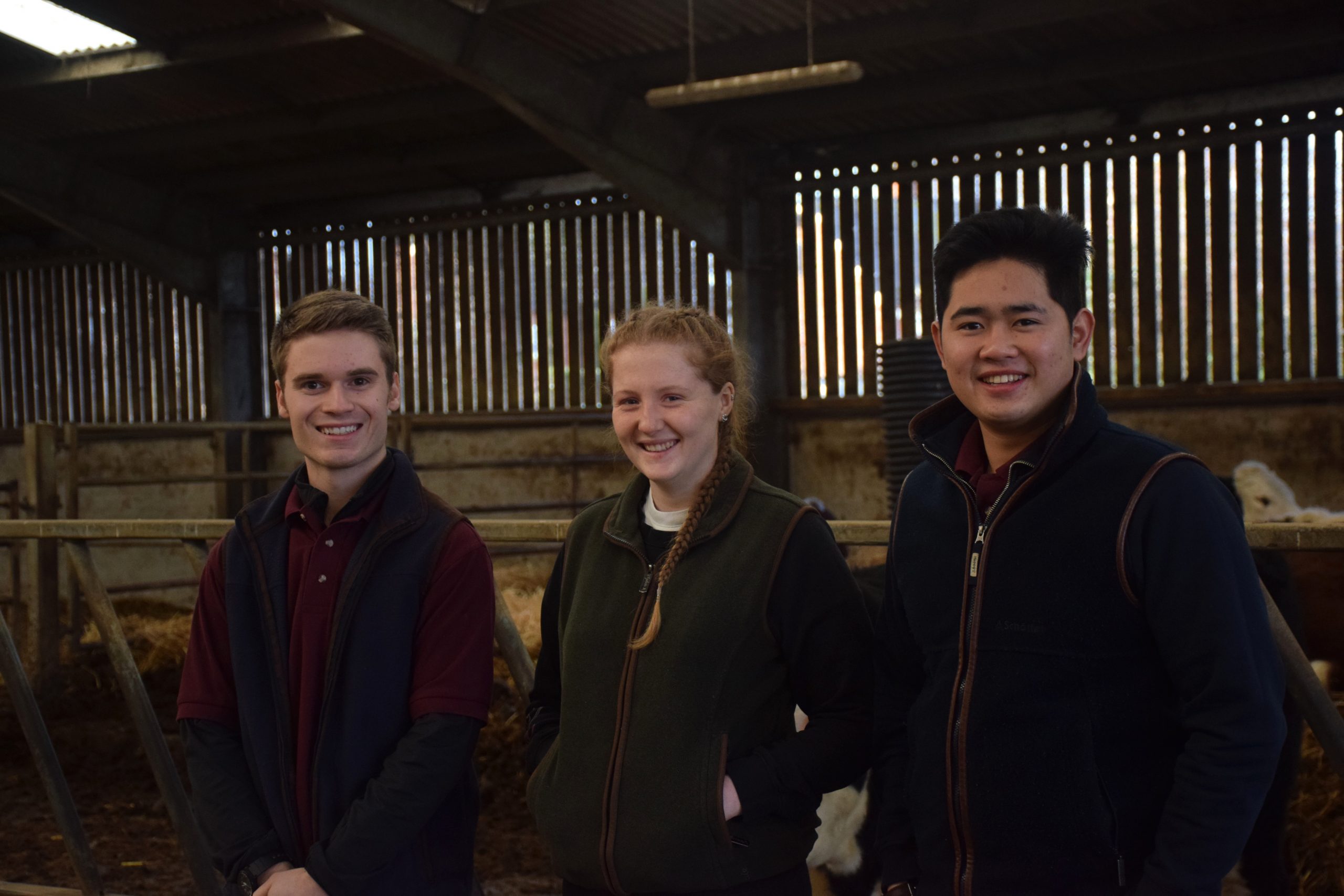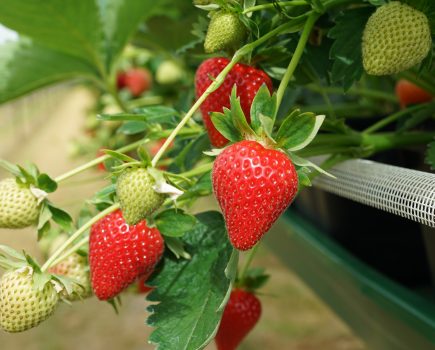A responsive and jobs-focused approach to learning gives students at Hadlow College the best possible opportunity to move on into a rewarding career in the agricultural industry.
Close access to the college farm gives them hands-on experience with livestock, while top-level teaching is backed up by extra-curricular activities that give students valuable additional skills.
While the agriculture curriculum follows a nationally agreed syllabus, there are optional modules, which allow the tutors to liaise with local businesses, the industry and students to ensure that the final mix is relevant to local skills needs and job opportunities.
James Wright, Hadlow’s head of curriculum for agriculture, agricultural engineering, fisheries management and countryside, explained the importance of creating the most appropriate curriculum for today’s students.
“We work hard to give our students a great experience and a rounded education, but we also want them to be able to find good jobs when they leave here,” he commented. “That’s why we talk to the industry about the skills that are needed and the opportunities there are so that we can make sure the curriculum reflects those things.”
Agriculture lecturer Josh Velvick has first-hand experience of the way the college operates, having attended Hadlow as a student and left with a level 6 BSc Hons degree in agriculture. After spending a few years back on the family farm in Hawkhurst he returned to the college to manage the dairy herd, which he did for 18 months.
Josh then decided that while he enjoyed working with livestock he preferred the company of students, so he trained as a lecturer, earning his post graduate certificate in education with Hadlow in association with Canterbury Christchurch University.
He began lecturing while training and, now qualified, finds it a worthwhile and rewarding career. “I really enjoy seeing the new intake of keen young students arrive in September, develop their skills and knowledge during the year, achieve their qualifications and then head off to the world of work,” he explained.
The focus on making students work-ready is central to the Hadlow ethos and is reflected in the results the college achieves. James estimated that more than 90% of students left college and found themselves a job in agriculture, with many of them staying in touch over the years and regularly updating their former tutors on their career progress.
“It’s great to hear from students who have left and gone on to do well,” said Josh. “We’ve just heard from one who is working out in Australia at the moment and lots of them keep in touch.”
While the dairy herd is no longer at Hadlow, having been replaced by a 25-strong herd of mainly Hereford suckler cows, that doesn’t mean current students don’t get their fair share of dairy experience, including early morning milking duties.
The college has set up a strong link with the Pickering family which welcomes students to its dairy set up at Park Farm, just two miles away from the Hadlow campus.
“It’s a strong relationship and it works really well, giving our students access to a successful dairy business and a chance to see how a commercial dairy farm works,” said Josh.
“It’s a real-world scenario and great preparation for life beyond the college. Learning and working on a commercial dairy gives our students a real sense of responsibility as they know how important it is to get things right in that kind of setting.”
The students agree that the off-site opportunity provided at Park Farm is a benefit rather than a disadvantage.
Finn Selby-Green, a 19 year-old level 4 agriculture student, commented: “Seeing how another business works is a real bonus. It allows us to compare strategies and see a different approach as well as getting the chance to gain some practical experience.
The college farm – Blackman’s Farm, close to the main campus – has a flock of around 450 Suffolk mules, north country mules and Lleyns which graze close to 500 acres.
The farm is looked after by Simon Newington, who, while his main focus is the welfare of the animals, is also well aware of the support he can give to the teaching staff and students, who routinely help with a range of jobs on the farm, from feeding to vaccinations.
“When you are working with livestock things happen, sometimes unpredictably, and part of my job is to make sure that I pass on any opportunities for students to get involved with hands-on farming outside the usual curriculum,” he explained.
The way to make sure that happens is by having clear lines of communication between the farm and the teaching staff, something that benefits from the fact that Simon’s partner Tania Bucknell is a technical instructor at the college as well as working alongside him on the farm.
Simon, who took on the farm manager’s role in September, was born of farming stock in Groombridge, East Sussex. After graduating from Harper Adams University in Shropshire he worked for Sentry Ltd on a number of different farms before gaining experience in a variety of environments, including an organic farm in the Cotswolds where he looked after two dairy herds.
“My main role here is to look after the farm and see that the stock is well managed, but I’m always on the lookout for opportunities to contribute to the students’ experience,” he said.
With a neighbouring farm offering its fields for crop walking and farm operation experience, and the dairy herd no longer on farm, Simon is looking to make the best use of the grassland at Hadlow and is considering expanding both the beef and sheep herds. He is also keen to make good use of the existing buildings at Hadlow, with calf rearing one future option.
While not a commercial entity as such, the college farm is expected to “make a margin”, in James’ words, something he feels is important. “The students need to understand the economics of agriculture,” he said. “It’s something they study and it’s important for the farm to demonstrate how it works in practice.”
Simon is currently preparing for a busy lambing season, with 400 ewes having scanned at 200%. “Including 40 sets of triplets,” he added. It could mean a few headaches when things get busy, but it should make the college’s popular lambing weekend an event not to be missed.
This year’s event on 25 and 26 March will offer a great chance for members of the public to see not just newborn lambs but everything else the college has to offer.
With climbing walls and other family friendly activities, plus a chance to tour the animal management and reptile centres and learn more about what the college has to offer, it promises to be a great day out. Alongside the chance to enjoy the sight of scores of spring lambs gambolling in the field, there is always the chance to visit the lambing sheds and potentially see a newborn enter the world.
There will be food and drink on offer, as well as a range of stalls and other attractions. The event normally attracts between 8,000 and 10,000 people, so booking early is advised. Tickets, at £10 per adult, £5 for children 2 to 16, students and concessions and £25 per family (two adults and up to three children) are available online.
Farm manager Simon said that as well as offering a great opportunity for visitors to see around the farm, it also gave the students experience in dealing with the public and a chance to share their knowledge.
While student Finn Selby-Green is keen to use his degree as a springboard towards a more management-focused career, level 3 agriculture students Georgia Field and Bingo Bunkuea, both in their second year, are hoping to begin their careers at the end of their current studies.
Bingo, who comes from Thailand, where his grandfather grows sugar cane, is considering returning to that country at some point to share his knowledge and pursue a farming career there, while Georgia said she enjoyed every aspect of the course but was particularly keen on working with livestock and enjoyed milking.
Looking forward, the trio said that they expected technology and integrated farming systems to be the way forward for agriculture, along with a focus on protecting the environment. All three were full of praise for the skills they had learned at Hadlow College.
Lecturer Josh Velvick explained that extra-curricular activities at Hadlow allowed students to gain additional qualifications such as a telehandler ticket, while the Yellow Wellies Foundation supplied valuable health and safety training and local vets provided injection training.
Another popular part of the Hadlow offering is the end of year study tour that takes in different farms and businesses and gives students a wealth of experience, great contacts and, in some case, the chance to impress a future employer.
“It’s just another way in which we make sure the college retains a clear focus on helping students into work,” added curriculum boss James Wright.
The photographs accompanying this article were taken by Daisy Moseley, a former North Kent College photography student who is now the marketing and communications assistant at Hadlow College.
- James Wright and Josh Velvick
- Simon Newington
- Students Finn Selby-Green, Georgia Field and Bingo Bunkuea

